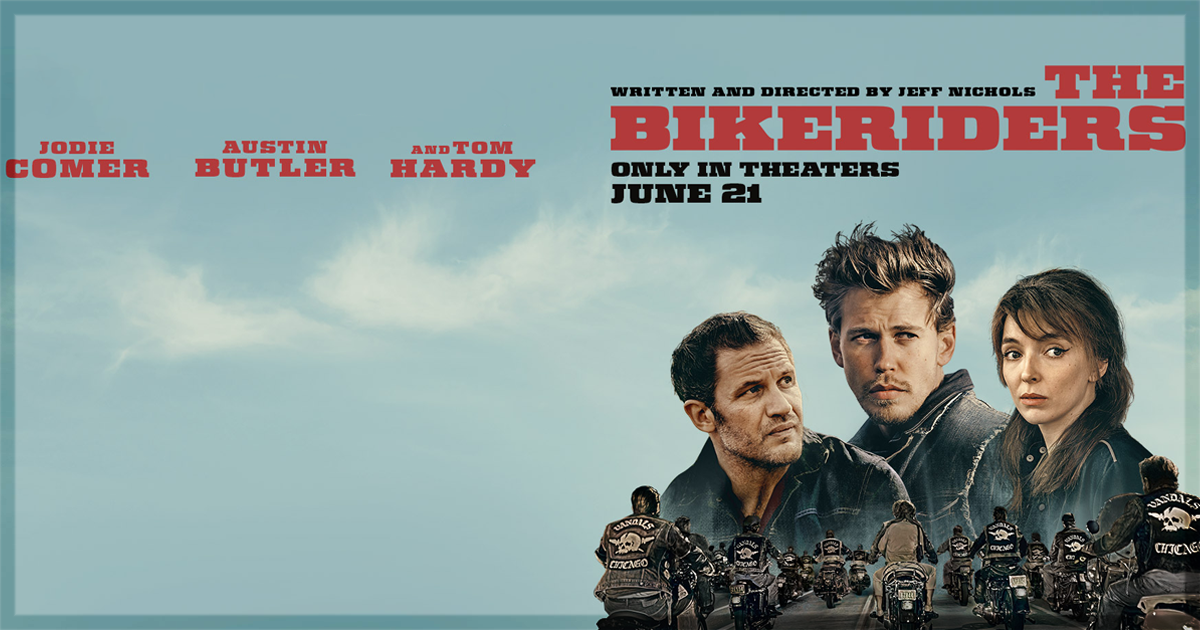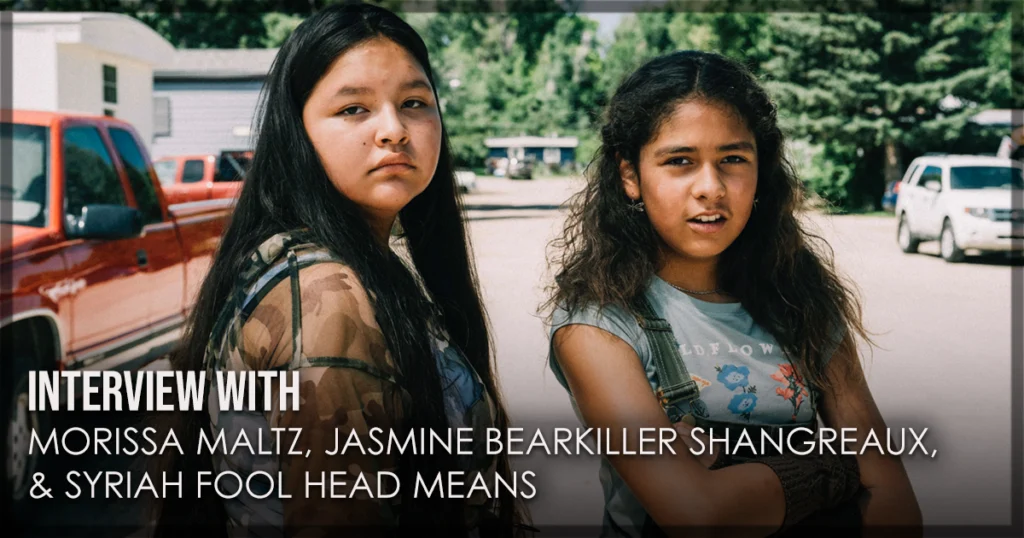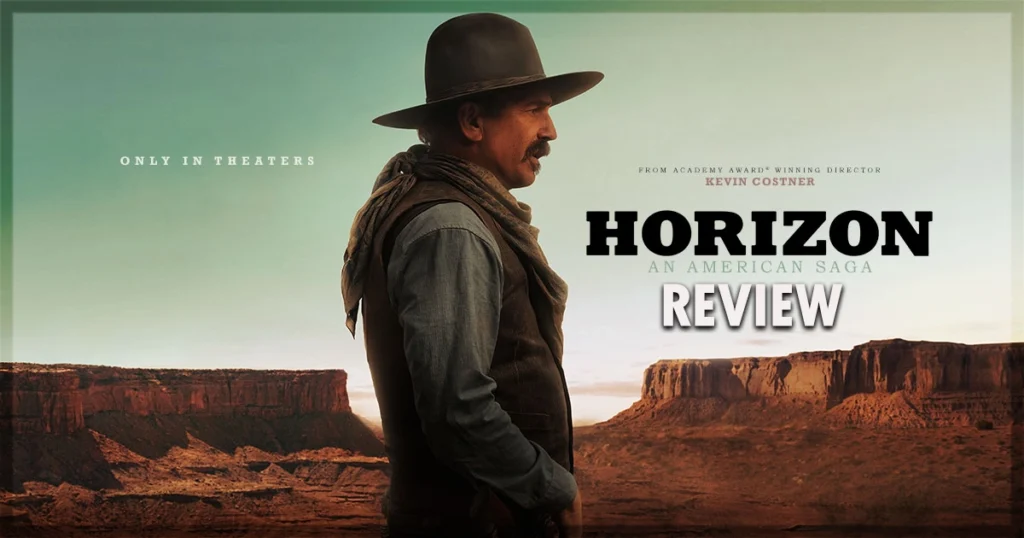It’s a tale as old as art – male characters do stuff, and female characters react to male characters doing stuff – but it’s rarely taken to such an extreme as in The Bikeriders. Kathy (Jodie Comer, more on whom later) quite literally narrates the story of the Chicago biker gang to which her husband Benny (Austin Butler) belongs during the sixties to a photography student named Danny (Mike Faist, in the smallest part he’ll ever have again for a while). These characters are all directly based on real people, whose lives the real Danny Lyon documented in a book, and the research tapes for which were evidently recreated wholesale in writer-director Jeff Nichols’ script. But choosing to recreate a photography book on film means that The Bikeriders has very little impact for all its star power. Instead of creating a plot that lines up with the photographs, it chose to tell a story of the story. It’s an appalling achievement that wastes all this talent and leaves a nasty taste in the mouth.
The first difficulty is that the world of The Bikeriders shows very little riding. Instead, there’s an awful lot of sitting around, either at sketchy house parties or at outdoor picnics where the Vandals, led by Johnny (Tom Hardy), are largely feared and avoided. Johnny set up the group because he wanted to emulate Marlon Brando in The Young Ones, and why a middle-aged man would feel so unhappy with his life that he went to this level of trouble evidently needed no further explanation. Mr. Hardy does a great line in being appalled at the violence he’s committing while he’s in the middle of committing it, but his ability to switch from weary paterfamilias to viciously cruel bastard raises more questions than it answers. Even Kathy marvels at how the other men agree to Johnny’s behavior, which is indistinguishable from self-harm. As the years continue and the club expands, Johnny complains repeatedly that things are getting out of control, and the new, younger members are dangerous in ways he cannot handle. The famous series of tweets about how a dive bar becomes a Nazi one spring to mind, especially since Mr. Nichols removed the Nazi paraphernalia that was part and parcel of the real-life club, including as seen in some of the genuine photographs shown in the closing credits. Failing to ask why a group of white men would do that while the American civil rights movement is happening offscreen is, at best, boring and, at worst, racist. The real Mr. Lyons was heavily involved in the civil rights movement (he was the in-house photographer for the SNCC), so that blindness is not shared by the source material, either. Considering the awe with which Mr. Nichols and cinematographer Adam Stone show the violence they do depict, it’s quite the lacuna.
So, that aside. As Mr. Hardy does his best Marlon Brando, Mr. Butler does a very good James Dean, driving his bike one-handed and radiating such unbelievable handsomeness that no explanation is needed for why Kathy married Benny after five weeks. There’s even a close confrontation between Benny and Johnny, filmed at night, which is so intimate it’s surprising they don’t start making out. But the homoeroticism dares not speak its name. Ms. Comer, a chameleon on a level with Meryl Streep, is spectacular as a woman who cannot believe the life her love has led her to live. Early on she asks the rhetorical question as to whether her relationship is love or stupidity, as over the years Benny’s commitment to putting himself into great physical danger for the thrill of it doesn’t wane. (He also has a tattoo of his own name on his arm, which raises several questions.)
The other OG club members, played by a fine array of character actors, including Michael Shannon, Emory Cohen, Boyd Holbrook, Damon Herriman, and Norman Reedus, are equally vivid men of a certain age. They feel like outcasts for one reason or another, value work with their hands and the club and nothing else. Almost all of them are married, but their ‘old ladies’ are background ornaments, and if they have children, they are unseen. Kathy lives in a three-story house, but the real-life children she brought to her relationship with Benny are erased here too.
This is Mr. Nichols’ sixth film and he’s outstanding at creating atmosphere and a sense of dread. He’s also generally wonderful at showing inarticulate men making life-altering choices; Joel Edgerton has rarely been better than in the one-two punch of Midnight Special and Loving. The focus on male friendship, including when everyone beats each other up until they get too bored or tired to continue, is kind of adorable except it really isn’t. It’s quite a thing for a married father to ignore his family to devote all his time and money to a hobby with his buddies, but the fact that The Bikeriders is indifferent to the impact that has is the insult to the injury. But the movie is too in love with the bad behavior on show here to want to deal with the consequences.
Of course, if Mr. Nichols had dealt with the consequences, he would also have been forced to deal with the truth of these men and their choices. So instead he made a decision as old as time: he got a woman to use all her skill and abilities to handle it, so he didn’t have to. But Kathy’s narration keeps everything at such a remove that by the end the movie feels meaningless. These men are so immature and unpleasant they deserve everything they get. The filmmakers’ hope was that this story of the story took all the nasty (Nazi) bits out and allowed the glamour to remain, and Mr. Butler is so handsome that the plan largely works. But the consequence is that The Bikeriders is revisionist history and nothing more. If that’s the vibe, you can keep it.
The Bikeriders is now in theaters.
Learn more about the film by visiting the official website.
You might also like…
Morrisa Maltz and ‘Jazzy’ stars on Capturing Childhood, Friendship, and Growth



